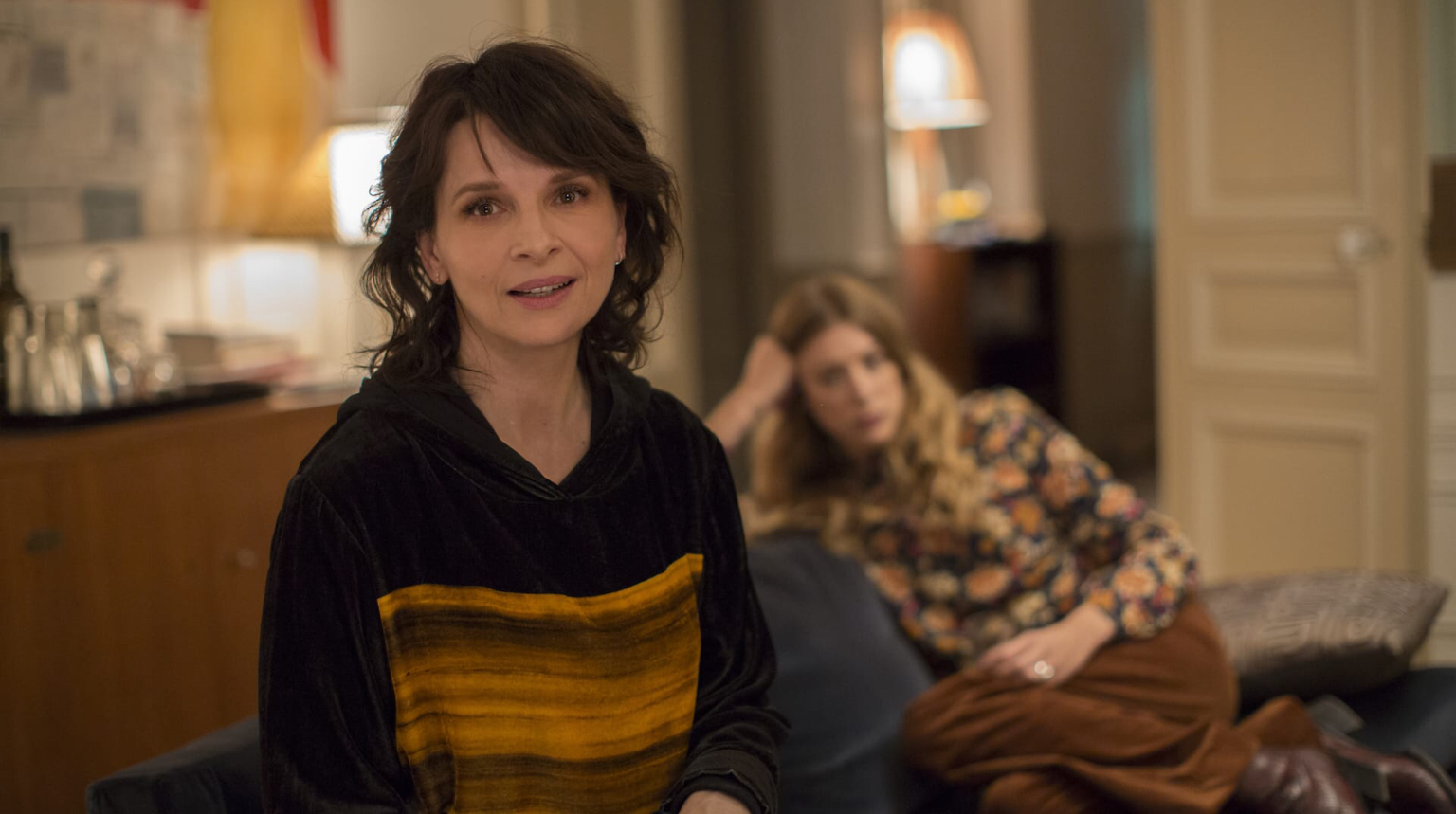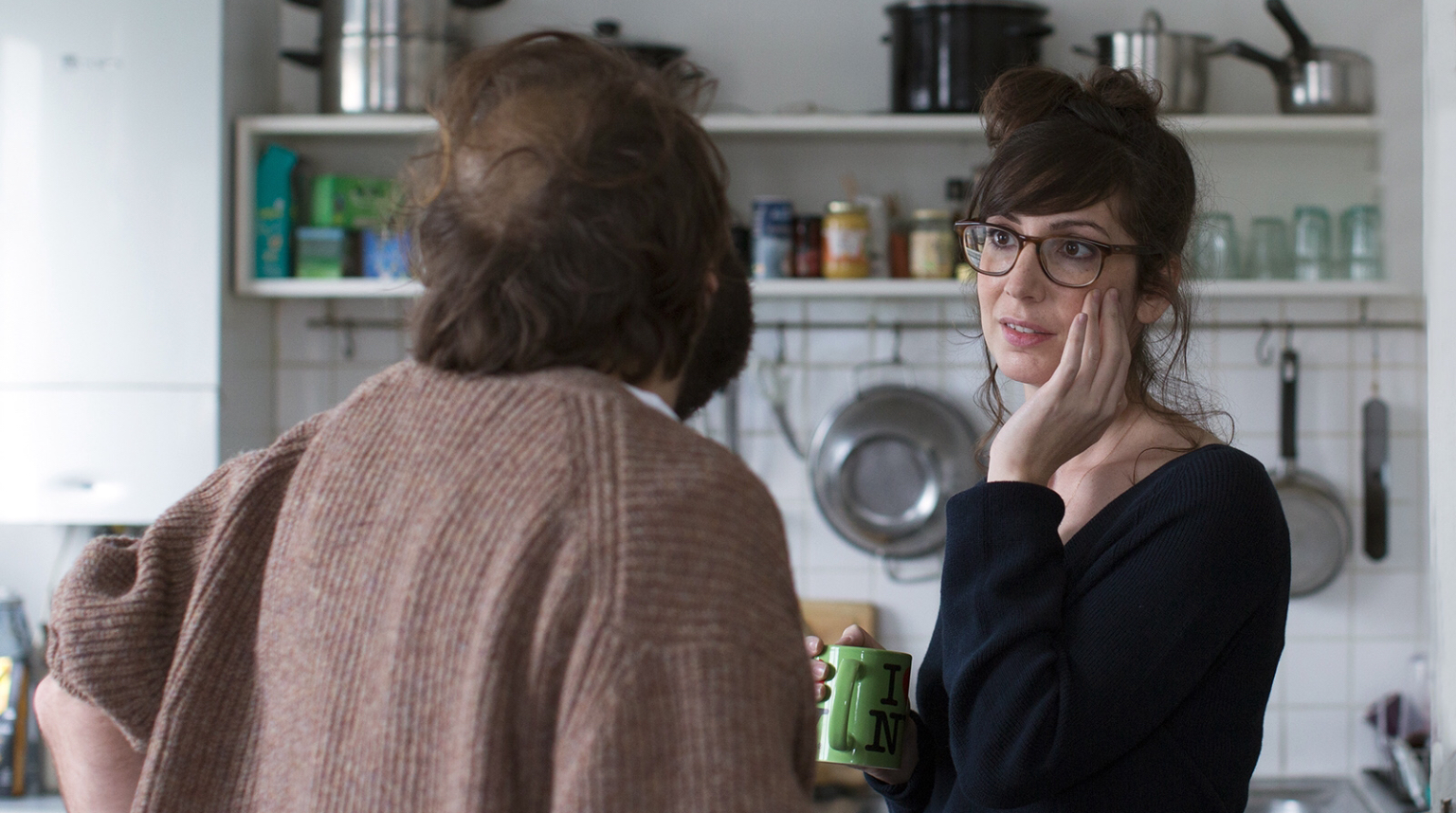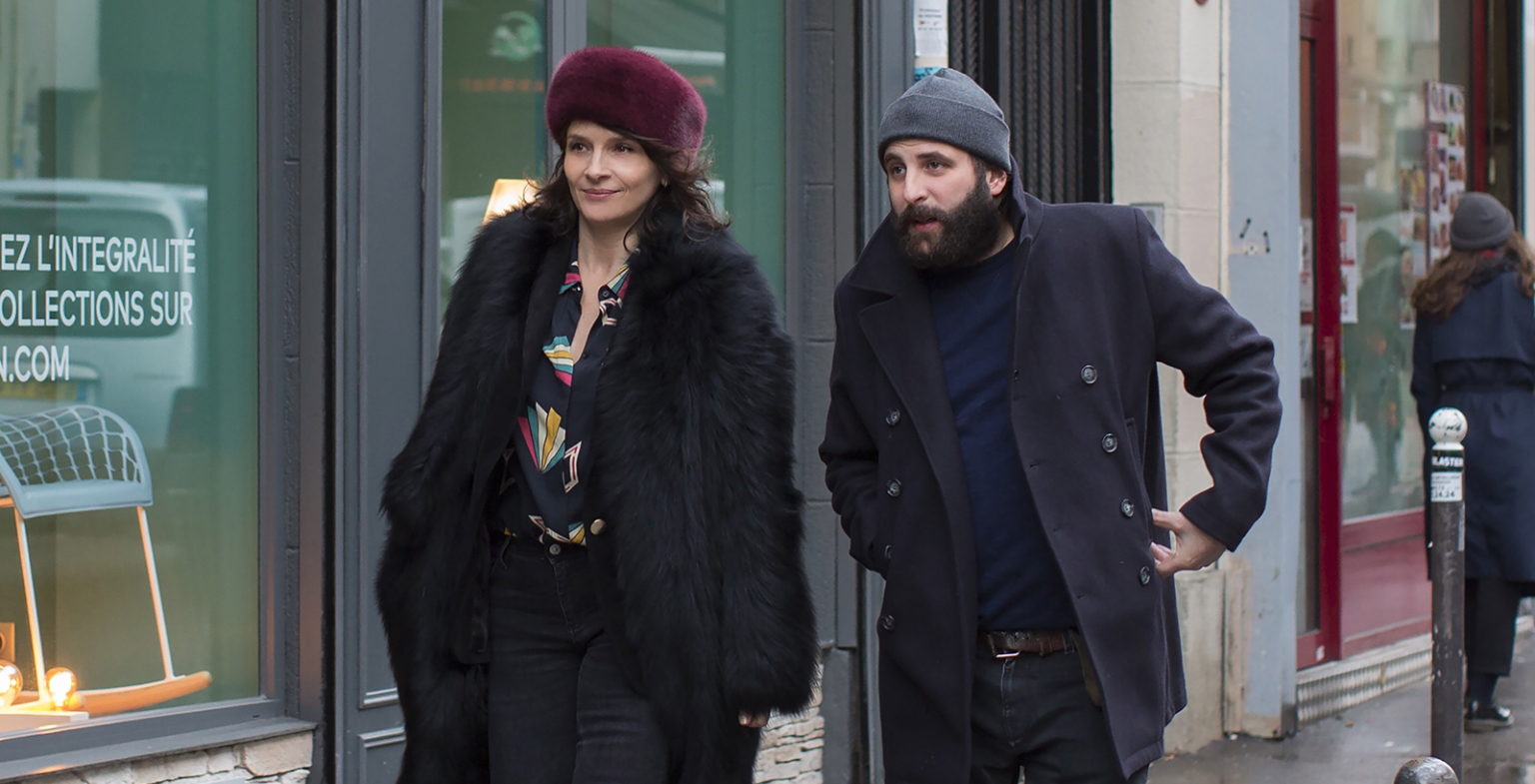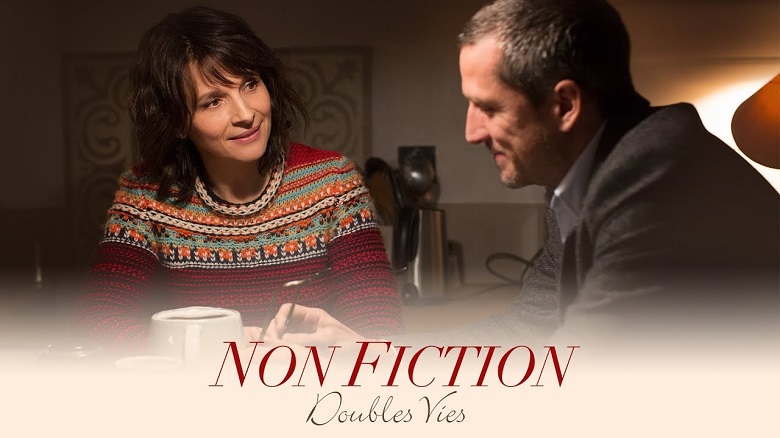Non-Fiction (Doubles Vies) (2018).
In the latest offering from acclaimed French writer/director Olivier Assayas, he turns his attention to the publishing world for a tale of the changing times due to technology and the relationships surrounding them.
The movie opens with book publisher, Alain Danielson (Guillaume Canet) meeting with one of his clients Léonard Spiegel (Vincent Macaigne) to talk about publishing his latest novel. Léonard writes about his numerous affairs and personal life experiences, vaguely masking their identities with name changes, but this most recent work doesn’t inspire Alain. Alain passes on Léonard‘s novel which throws him for a loop and he starts to ponder why this work is the one that gets cast aside by his long time publisher.
We are then thrust into an ongoing dinner party between Alain and his wife Selena (Juliette Binoche) discussing with their guests the changing industry of the book world. With the evolution of book readers like Kindle and smart phones, books seem to be a dying business. The public opting for the convenience and cost efficient model of online books or even audio books has Alain concerned about what the future holds. A very interesting conversation develops here between all the players with all making their points of the reasons for these changes.

Later on we are back with the defeated Léonard in need of consoling from his girlfriend, Valérie (Nora Hamzawi), who is herself dealing with the French political landscape and candidacy of hopeful David (Nicolas Bouchaud). Valérie gives him little affection and sympathy much to Léonard’s dismay.
We move to Selena filming her police series and she meets up with a friend to discuss her assumptions that her husband Alain has been cheating on her with a new women in his office. She doesn’t seem all that bothered by it, saying that the early relationship fire can’t stay hot forever and in a way this makes her husband better since his guilt turns into her gain.
We then see Selena’s suspicions confirmed when, on a business trip, the new woman Laure (Christa Théret) brought in to launch the technological part of the publishing house, sleeps with Alain.
Back with Léonard it’s revealed that he is indeed sleeping with Selena as they discuss his book and why he thinks Alain doesn’t want to publish it. It’s also revealed that one of the characters was based on Selena and when confronted by Alain in a opening scene, he diverted the identity to another woman as if to throw Alain off their track. Selena doesn’t seem so sure that this has lessened Alain’s suspicions.
At another dinner party Valérie is left trying to defend the importance of politics with no help from David. At one point David is laughing at a text message he receives from Selena and this now raises suspicions from Valérie that something is going on. When confronted Léonard plays the part and Valérie leaves it as is but not before reveling that she is in love with Léonard.

Alain meets with the owner of the publishing house and he tells Alain that they are looking to sell to a big company. They discuss again the technology that seems to be changing their world but also some assumed trends of the readership that seems to have an actual reverse effect contrary to popular belief. Looking for guidance and wisdom from Alain, he checks to see if Alain really does see major changes.
Alain and Selena, at yet another dinner party, discuss Léonard‘s book and Selena’s defence of it as some of his best work. At home Alain discusses why he doesn’t favor the book, mostly because of the way women are depicted, and why Selena seems so keen on the book. Selena does a great job of defending without showing her cards but you can se Alain’s suspicions in his eyes. In the end Alain decides that he will publish the book.
Selena has a meeting at a pub with Léonard to call off their affair but also to warn him not to use her as a character any further in future novels. Léonard agrees and is a little surprised that Selena has called off their affair. Later Léonard revels to Valérie that he’s been having an affair but that it’s over and he wants to start afresh. During this talk Valérie receives a phone call from politician David and rushes out to meet him. David tells her that he was arrested with a hooker and Valérie admonishes him for being so careless. This is a little crushing to her since she was the one to defend him as the new breed of politician but he seems to have the same flaws they all do.
To wrap up the story, in the not too distant future Valérie and Léonard are invited to the coast to spend time with Selena and Alain and discuss all the changes in their lives. Selena has given up on the series, Alain’s publishing house sale turned out to be a diversion, and Léonard is working on a new book. When Valérie and Léonard go off on their own she asks him why Léonard didn’t revel the material of his new book, which it just so happens has Selena as a disguised character again. She also revels to Léonard that she’s pregnant and they’re going to have a child.

While it’s very dialogue heavy, Non-Fiction remains an engaging study of human relationships. In particular the discussion about the effects of technology on the world of literature and the current generation’s relationship with both are explored to a degree that’s more interesting that it would appear on paper. Assayas is making a statement on the decline of what was once thought to be the knowledge and power held in books and the growth of the shorter new literature form of blogs and social media. Most of the characters are satisfactorily fleshed out and are relatable with the exception of Léonard. I didn’t quite buy his allure to both Selena and Valérie. He came across as whiny and sheepish, which begged the question as to why these two women would be involved with him. In particular Valérie who seemed to not really show him any genuine affection and even after finding out he was having an affair, she still ends up wanting to have a child with him. The French as portrayed here, are more evolved than Americans such as myself, and don’t get hung up on infidelity.
I’m no Assayas expert so it’s hard to determine whether Non-Fiction is much like the rest of his filmography, the only other film I’ve seen of his being Clouds of Sils Maria. Non-Fiction gets my recommendation based on nothing more than its solidly written characters who for the most part engage in believable relationships and the film is peppered with some very engaging and thought provoking discussion about the benefits and inherent pitfalls of the ever developing technology that we, as a species, seem so increasingly reliant on.
Film ’89 Verdict – 8/10

